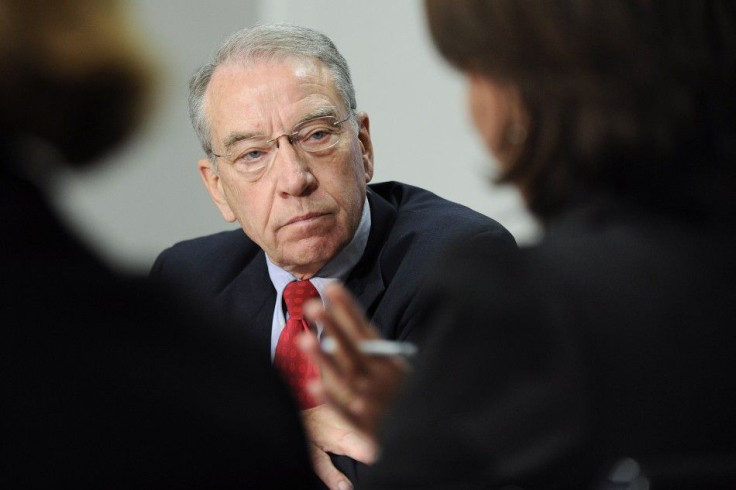FBI Insider Trading Probe Targets Senator Grassley’s Aide

As part of a widening insider trading probe that involves the U.S. Congress, the Federal Bureau of Investigation is trying to determine if an aide to Sen. Charles Grassley’s played a part in illegally divulging a key government decision to private corporations this spring, the Wall Street Journal reported on Monday.
Congressional aides are rarely targeted in federal probes, as the official duties of legislative-branch employees are protected under the Constitution.
Separately, the Justice Department sent Grassley’s office a letter last month, seeking information on Rodney Whitlock, the same health care aide targeted by federal authorities, the Journal reported, citing an unnamed source with knowledge of the matter.
The spotlight fell on Grassley’s staff after Height Securities published a research report on April 1 that led to a surge in health care stocks. The report correctly predicted that the government would retain certain medical payment rates instead of cutting them as previously announced. The report came out 18 minutes before the U.S. Centers for Medicare & Medicaid Services, or CMS, announced the changes, according to a Reuters report.
Iowa senator Grassley, the top Republican in the Senate Judiciary Committee, has shared the information with the Justice Department, his spokeswoman said. The Justice Department and the FBI are probing possible links between Whitlock and other entities that disclosed government decisions to investors.
Mark Hayes, a former Grassley aide who now works as a lobbyist, is one of the individuals on the watch list, according to the Journal.
Grassley asked the top government health care agency for a timeline and names of people who had knowledge of the decision. CMS has provided names of more than 400 people who knew of the announcement, but Grassley’s spokeswoman said Whitlock was not one among them.
She said Whitlock “could not possibly have conveyed to Mark Hayes or anyone else what CMS was planning to do on Medicare Advantage, because he didn't know,” referring to the CMS decision in question, the Journal reported.
In March 2012, the Senate unanimously adopted an ethics bill that bans congressional members from trading stocks and other securities on the basis of confidential information they receive from lawmakers. However, two key provisions were scrapped before approval, including one that sought to regulate the “political intelligence” industry that collects information from political insiders for the use of hedge funds, mutual funds and other investors.
The proposal would have forced law firms, brokerages and other entities that analyze government data for investors to disclose their client lists and other sensitive information, and Grassley is working to reinstate the provision on political intelligence.
Legal experts said the investigation is a pioneering effort in the growing political-intelligence space, the Journal reported. "This is all fairly uncharted territory in this context," John C. Coffee, a securities-law specialist at Columbia University in New York, told the Journal.
© Copyright IBTimes 2025. All rights reserved.






















